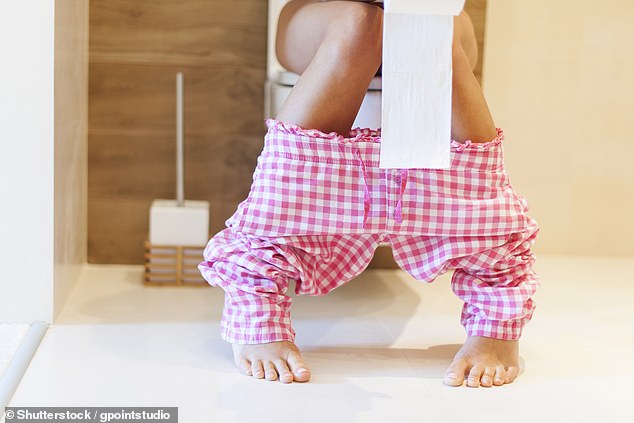Table of Contents
When nature calls, you’re probably focused on finding a bathroom quickly, rather than how exactly the job gets done.
However, it turns out there is a right way to go, and most of us are doing it wrong.
UK-based bladder health expert Dr Masarat Jilani says there are five essential rules for sitting on the porcelain throne that most of us are completely unaware of.
For example, although sitting upright is usually ideal, the bathroom is not the right place for this if you want to have a completely empty bladder.
Even if you’re in a public bathroom, resist the temptation to float around. And going “just in case” can lead to an overactive bladder.
Here are Dr. Jilani’s top five tips for urinating the “right” way.
Dr. Masarat Jilani described the ways someone who uses the bathroom may be damaging their bladder
Forget your mother’s orders, you don’t feel right
Although your mom probably insisted you sit up straight, the bathroom is not the right place for this.
Dr. Jilani, a family doctor specializing in bladder health, notes that most people maintain an upright posture from the waist up, but this could mean that the bladder is not emptying completely.
Instead, he recommends leaning forward with your elbows on your knees.
This position causes the pelvic muscles to relax and allows the bladder to empty completely.
Resist the temptation to float on the seat
The thought of touching a public toilet seat may give you goosebumps, but Dr. Jilani warns that your “pelvic floor hates” the floatation method.
Dr Jilani said: “The pelvic floor muscles cannot fully relax in this position, preventing the bladder from emptying completely.”
“Over time, it can make the bladder less functional.”
‘If you can, use a seat cover or clean it. If you absolutely must float, try supporting some of your weight by leaning on the door or wall to take some of the pressure off your pelvic floor.
Urinating should be effortless
Once you’ve managed to sit up, urinating should come naturally.
Dr. Jilani advises against people straining to urinate, as “you shouldn’t feel the need to strain your muscles… to urinate.”
‘When you push hard, you’re actually activating your pelvic floor muscles, when you should actually be relaxing them.
‘Over time, this could confuse your bladder by teaching your muscles to do the opposite of what they should do naturally. Instead, go with the flow and never interrupt the flow.’
If you need to push, this could indicate a problem with your bladder, such as a blockage, that would require a doctor’s attention.
Don’t go ‘just in case’
Many of us have taken the time to go ‘just in case’ before leaving home.
However, such precaution is not only unnecessary but could cause lasting damage to the bladder.
Rather, Dr. Jilani recommends going when you feel it is necessary.
She said: “This common time-planning trick can cause your bladder to become overactive.” An overactive bladder means that you often feel the need to urinate and may not be able to control the loss of small amounts of urine.
“Instead, always listen to your body and go only when necessary, even if it’s inconvenient.”
Holding it is never a good idea
But on the opposite end of the spectrum, containing it could be even worse, Dr. Jilani warns.
If you find yourself somewhere without a bathroom, holding it once in a while won’t do you much harm.
But making retention a habit could weaken the bladder over time; It could also make you more prone to urinary tract infections.
This is because when you do not empty your bladder often enough, bacteria present in the urinary tract are more likely to colonize and cause infections.
This can also happen when you don’t drink enough water, so remember to stay hydrated and make time to go to the bathroom regularly.
Dr Jilani said: “If you make it a habit, it will weaken your bladder over time and could also make you more prone to urinary tract infections.”
This is because when you do not empty your bladder often enough, bacteria present in the urinary tract are more likely to colonize and cause infections.
“This can also happen when you don’t drink enough water, so remember to stay hydrated and make time to go to the bathroom regularly.”


